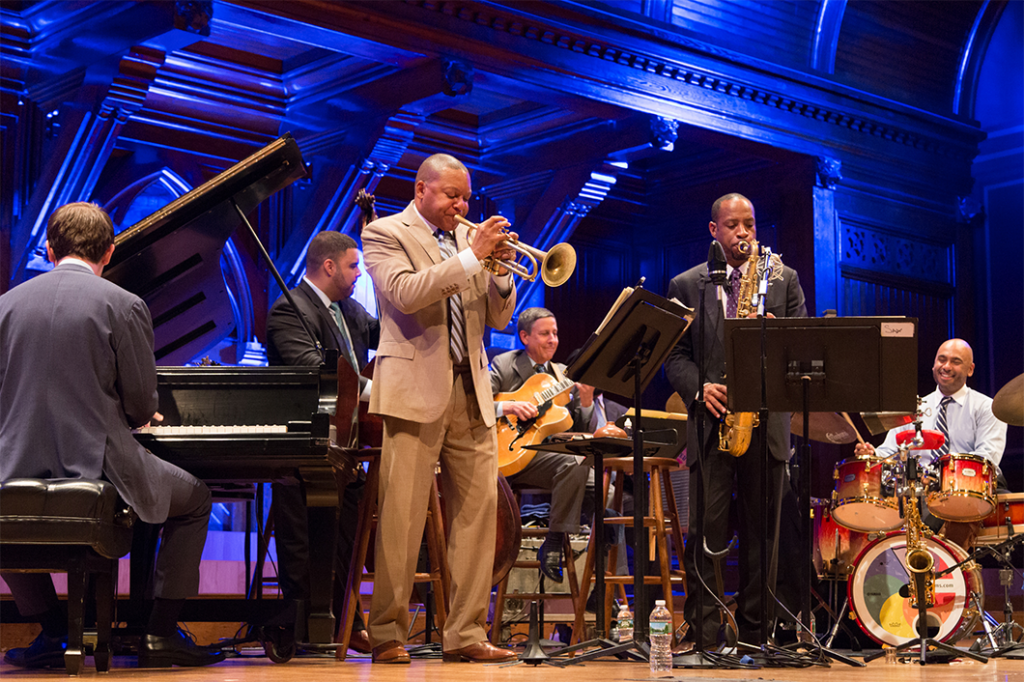
Power: Accountability and Abuse
September 10-11, 2016
Sanders Theatre • Harvard University
The weekend included performances, conversations, and talks highlighting the work of Pulitzer Prize winners.
Harvard University President Drew Gilpin Faust opened with an introduction of Pulitzer Prize winner Wynton Marsalis, who reflected on the themes raised by "Blood on the Fields," his epic oratorio of one couple's journey from slavery to freedom. His piece was the first jazz composition to win the Pulitzer.
Additional presentations by:
Danielle Allen, former chair of the Pulitzer Prize Board
Dean Baquet (Investigative Reporting, 1988)
Robert Caro (Biography, 2003 and 1975)
Junot Díaz (Fiction, 2008)
Caroline Elkins (General Nonfiction, 2006)
Mark Fiore (Editorial Cartooning, 2010)
Sara Ganim (Local Reporting, 2012)
Annette Gordon-Reed (History, 2009)
Donald Graham, former Washington Post publisher
Stan Grossfeld (Spot News Photography, 1984; Feature Photography, 1985)
Maria Henson (Editorial Writing, 1992)
Mary Jordan (International Reporting, 2003)
Julia Keller (Feature Writing, 2005)
Yusef Komunyakaa (Poetry, 1994)
Ann Marie Lipinski (Investigative Journalism, 1988)
Wesley Lowery (National Reporting, 2016)
Fredrik Logevall (History, 2013)
Lin-Manuel Miranda (Drama, 2016) (prerecorded)
Lynn Nottage (Drama, 2009)
Sacha Pfeiffer (Public Service, 2003)
Laura Poitras (Public Service, 2014)
Kevin Sullivan (International Reporting, 2003)
Joby Warrick (General Nonfiction, 2016; Public Service 1996)
Bob Woodward (Public Service, 1973; National Reporting, 2002)
Lawrence Wright (General Nonfiction, 2007)
The finale was a performance of “On the Transmigration of Souls” by John Adams, winner of the 2003 Pulitzer for Music, conducted by Federico Cortese of the Harvard-Radcliffe Orchestra with Voices Boston and the Tanglewood Festival Chorus
